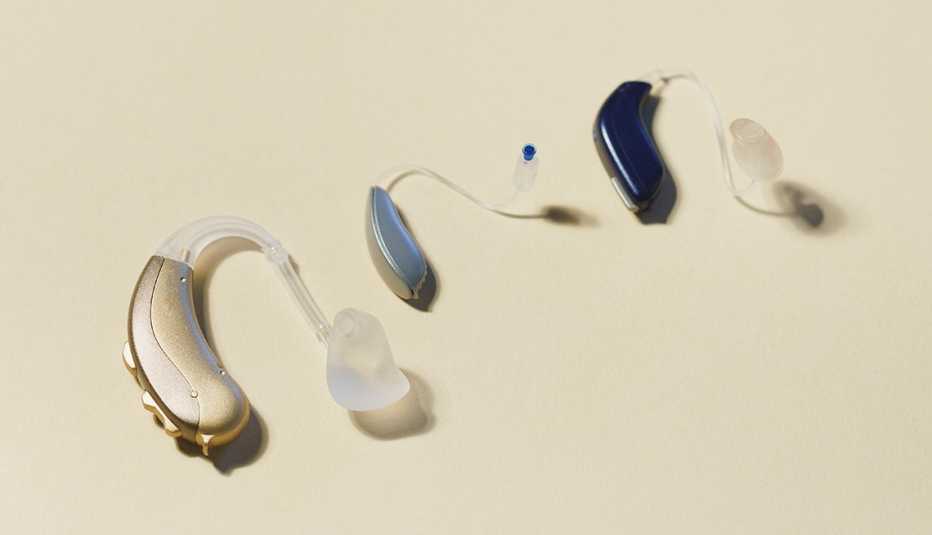Staying Fit


Considering a hearing aid for yourself or a loved one? Forget everything you think you know about them. Traditional excuses for not wanting to wear a hearing aid — such as “they’re too ugly,” “they make me look old” or “they’re too complicated,” — simply don’t apply anymore. “Today’s hearing aids are smaller, supercool looking and connect seamlessly with all of our modern technology,” says Jessica Galatioto, director of audiology at Columbia University Irving Medical Center in New York City. Unfortunately, however, hearing aids aren’t cheap — typically ranging in price from $2,000 to $6,000 a pair — nor are they covered by Medicare or most insurance. But that doesn’t mean you have to sacrifice style or quality, if you know what to look for. Listen up as we explain the latest in technology, features and costs.


AARP Membership— $12 for your first year when you sign up for Automatic Renewal
Get instant access to members-only products and hundreds of discounts, a free second membership, and a subscription to AARP the Magazine.
You’re going to need a hearing specialist
While your first conversation about hearing loss and an initial screening may be with your primary care physician, an audiologist is the expert trained to diagnose hearing loss and prescribe hearing aids. “If you’re experiencing gradual hearing loss without any medical issues like pain or discharge, you can schedule directly with an audiologist yourself, or ask your primary care doctor for a referral,” says Catherine Palmer, director of audiology and hearing aids at the University of Pittsburgh Medical Center. You can also ask for an audiologist recommendation from an ENT (ear, nose and throat) practice. Hearing instrument specialists are another type of provider licensed to fit and dispense hearing aids.
Customizing is critical
The key to successful hearing-aid use is the programming of these devices, which is what an audiologist or hearing instrument specialist does. “I can have five patients with the same diagnosis, but they all have different acoustic settings on their hearing aids,” Galatioto says. As a result, some tinkering is to be expected initially. “Your first prescription probably won’t be the same one you have at four months,” she adds. Over the course of a few visits, you can expect your provider to:
- Conduct a comprehensive hearing evaluation
- Have an in-depth discussion with you about your lifestyle, communication needs and difficulties, hobbies and interests
- Customize physical fit of the device, which is done by creating a mold of the size and shape of your ear canal for in-the-ear aids, or trying on different size domes and tubes for behind-the-ear aids
- Customize acoustic fit, which is achieved by programming the hearing aid for the best volume, frequencies, intensity levels, power output, noise-reduction settings and more to suit your specific hearing needs
Small size is a big deal
Since the best hearing aid is the one that someone will actually wear all the time, you can expect your provider to have a conversation about your individual style preferences.
“Hearing aids look much more modern now with sleeker designs and metallic and matte finishes that are very attractive,” Palmer says. “Many people can use the small, behind-the-ear hearing aids that mix in with a person’s hair and are hard to detect. In addition, the hearing aids that go completely in the canal are now so tiny they cannot be seen once placed in the ear.”

































































More on Health
10 Signs of Hearing Loss You Shouldn’t Ignore
These everyday warnings deserve your attentionMild Hearing Loss? Hearing Aids Aren't the Only Answers
'Hearables,' specialized headphones and other tech tools can provide sound solutions at a lower cost